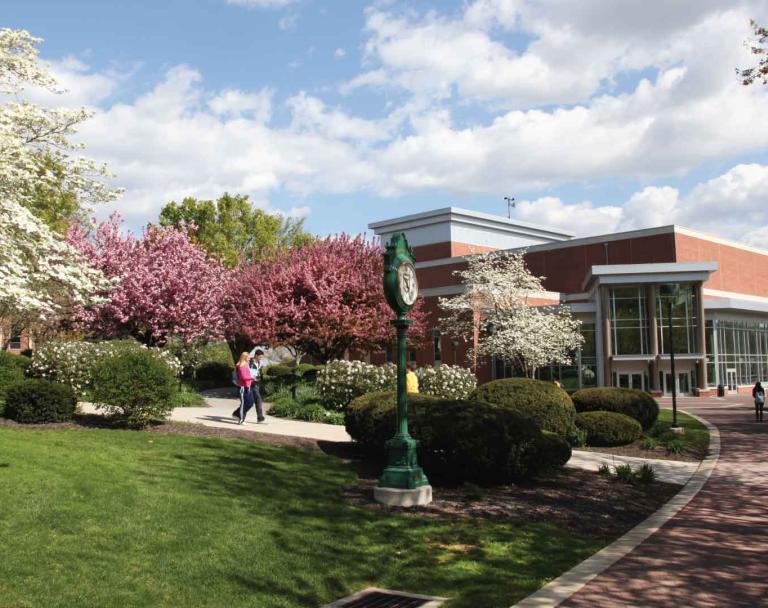Michelle Fellner

- Academics
- Graham School of Business
- Spotlights
- Michelle Fellner
Stimulus brings stability for York College student pursuing Entrepreneurship
Shortly after losing her sales job because of the pandemic, Michelle Fellner ’24 enrolled in the Entrepreneurship and Innovation program at York College of Pennsylvania. For the 44-year-old woman, it was the first step in rewriting her story so she could pursue her dream of owning her own business—a consulting firm for small food manufacturers.
“I’ve seen a lot of people struggling to keep their businesses alive, and I wanted to help them,” Fellner says. “I saw this as an opportunity to get the skills I need to do that.”
As she took classes, she continued to look for work. But when her unemployment account froze in October, she had no income for the next three months. Her adult daughter, who lives with her, had to help cover the utility bills.
“People are incredibly understanding of the situation so many of us faced this past year, but it’s still really hard to make that call and tell someone you can’t pay your bill,” she says.
Finally, a position at a local warehouse within walking distance of her home became available, and Fellner jumped at the opportunity. Now working and going to class full time, things looked even more hopeful when she received the latest stimulus payment on March 17. She was able to catch up on bills and hopes to soon start rebuilding her savings.
“I worry about how we might have to pay back all of the stimulus money when it comes to maybe higher taxes in the future,” Fellner says. “But, in the moment, I really needed that money. I didn’t have any other options.”
‘Still a long way to go’
The stimulus payments are a quick fix to what will be a long recovery, says Kenneth Slaysman, Associate Professor of Economics at York College.
“The pandemic has highlighted some of the fractures that exist in our social institutions, and those are things we’ll have to continue to deal with for some time,” he says. “The benefit of the stimulus is that it puts money into people’s hands immediately. That can be lifechanging for some.”
While not everyone may be in Fellner’s position, the stimulus will go to work in other ways, Slaysman notes. His sister, for example, will donate her stimulus to the local food bank. Some students who receive a stimulus, if they aren’t a dependent on their parents’ tax return, could consider putting it into savings or investing it.
“The last several months, the economy has been creating jobs at a pretty good clip, but it hasn’t come close to overcoming what was lost in the early stages of the pandemic,” Slaysman says. “There’s still a long way to go. We’re talking about millions of jobs that need to be replaced.”
Becoming more resilient
Slaysman believes the economy will start to turn as people become more comfortable with the healthcare situation. As more people become vaccinated, they will begin to travel, spend money more easily, and the fear of the pandemic will dissipate.
He’s talked to his students about things that the private market handles well and things that require collective action, such as wearing masks to mitigate spread of the virus. Being asked to sacrifice a personal freedom for the good of the community is a healthy debate to hear, he says.
He hopes his students have learned in the past year that it sometimes takes all of us working together to recover together. “At the end of the day, I think we’ll find we’ve made it through,” he says. “We’ll be far more resilient for what we’ve had to experience.”

